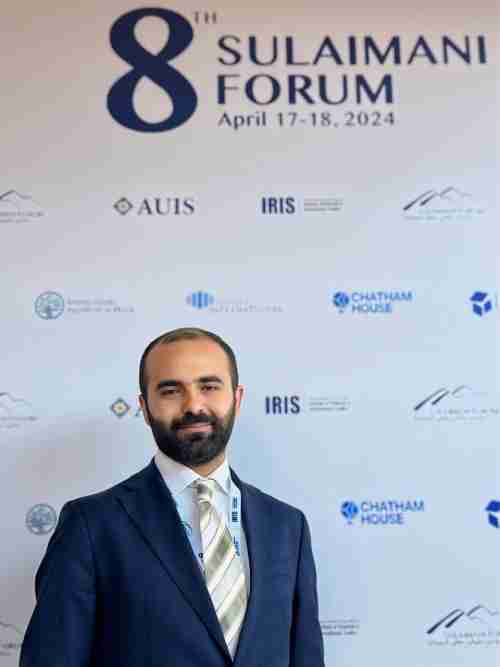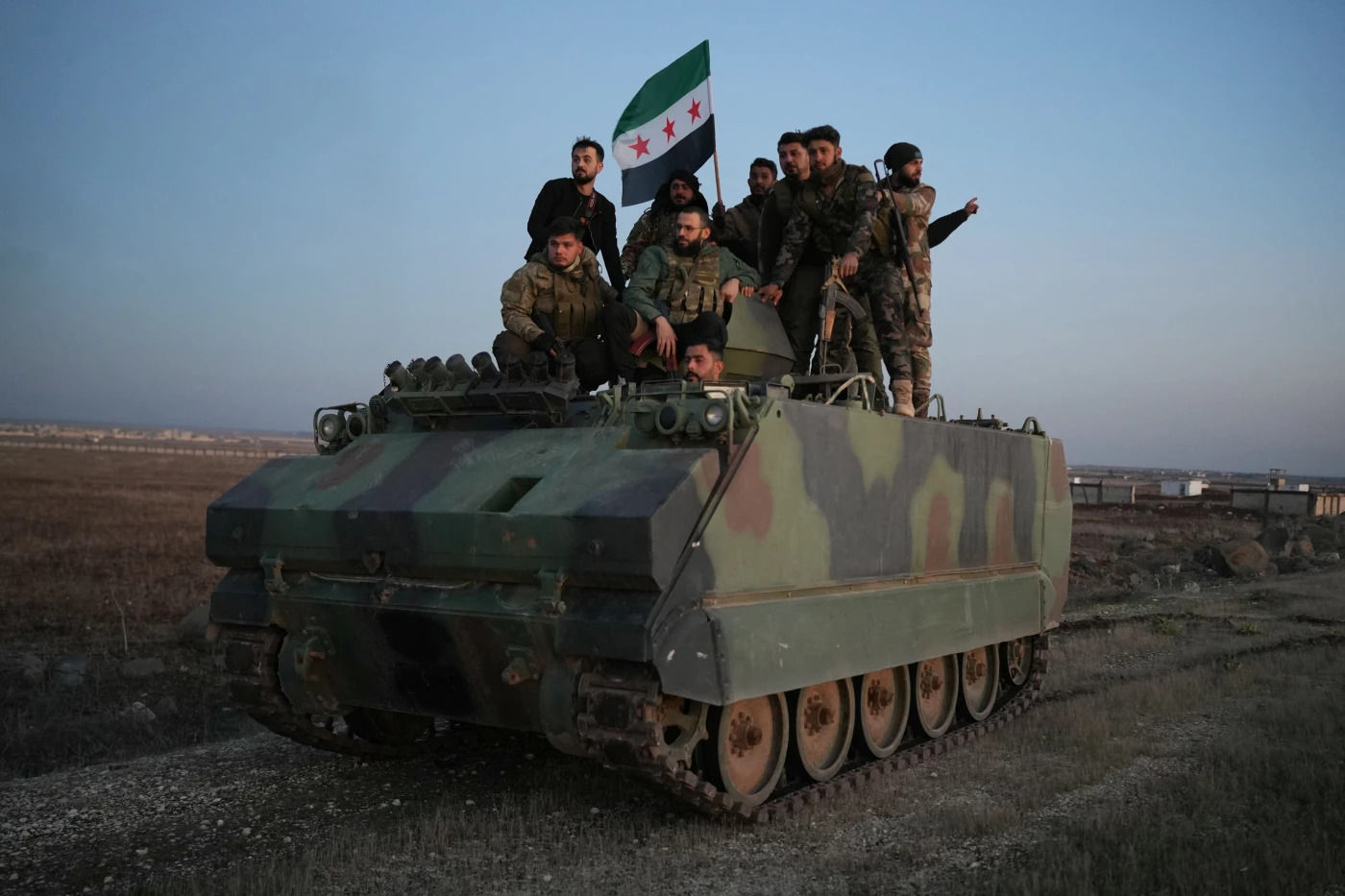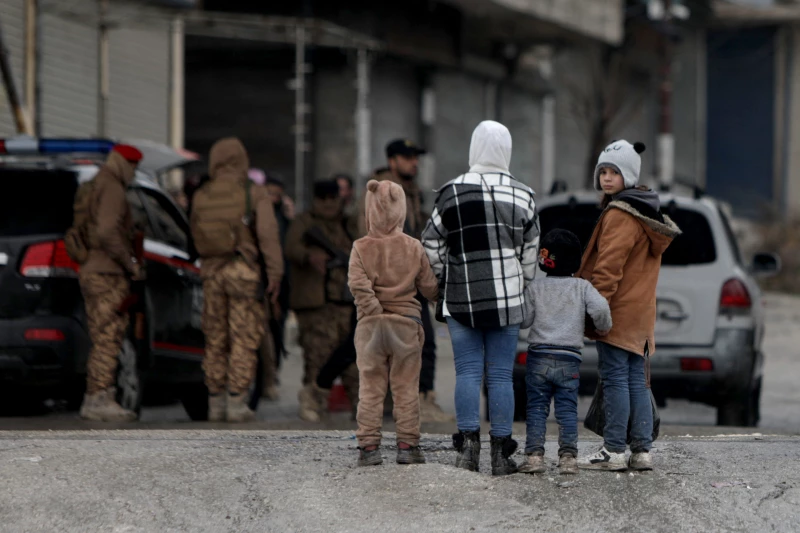ERBIL, Kurdistan Region of Iraq - Syria’s anti-government groups are open to establishing direct contact and lasting ties with neighboring Iraq, a senior leader of the Hay’at Tahrir al-Sham (HTS) told The New Region, refuting allegations linking the groups to the Islamic State (ISIS) or Israel.
For over a year, Iraq has attempted to shield itself from being dragged into the regional conflicts and held its breath in anticipation of a surprise strike from Israel. But as soon as the country began to catch its breath following the ceasefire declaration in Lebanon, the Syrian civil war came back into the spotlight in full force, sparking concerns among authorities in Baghdad over threats to Iraqi national security.
“We want distinguished relations with our geographical and regional neighbors and our Arab and Islamic neighbors,” Noureddin Baba, a senior HTS leader, told The New Region on Sunday, highlighting long-standing, broad relationships connect the peoples of Iraq and Syria, and stating that they hope to become future allies “in achieving the process of prosperity and development.”
There have been divisions among the Iraqi public as well as in the political scene over what Baghdad needs to do in light of the recent escalations in Syria: There are those who claim that it is not in Iraq’s best interest to continue backing the Bashar al-Assad government, and stressing the need to open dialogue with the “moderate opposition.” While others, mostly authorities and officials, have labeled the recent movements in Aleppo and Idlib as “terrorism” with which there should be no discussions.
Baba said he would be “honored” to visit Iraq to formally clarify the groups’ views and objectives, stressing that the media has established a distorted image of the opposition groups.
“There is a false image that was created about us in the media, which was due to the Syrian regime and some of its regional and international allies’ demonization efforts, that we are ISIS, Takfiris, or Israelis,” said Baba.
“This image contradicts the reality on the ground, and the evidence is that we have killed the most ISIS members in Syria, and the Syrian factions that are currently carrying out the Deterrence of Aggression operation have had the most members killed by ISIS,” he added, describing ISIS as “an enemy of the Sunnis which employs the Sunnis in pointless battles that only serve the enemies of Islam.”
The HTS senior leader said he was open to being interviewed by Iraqi television channels, especially those that have viewed the Syrian opposition “negatively” or “support and endorse the media and political approach of the Syrian regime and Iran,” including channels affiliated to the pro-Iran Popular Mobilization Forces (PMF).
Baba stated that there have been indirect efforts to communicate with Iraq authorities, stressing that they are interested in establishing direct ties and meeting with Iraqi political leaderships to explain and defend the groups’ perspectives.
The HTS was formed in 2017 as a result of a merger of several opposition factions. The group was initially a part of the Jabhat al-Nusra, a Jihadist front affiliated to al-Qaeda fighting against the Assad government during the Syrian civil war. It has been designated a terrorist organization by the US.
Emphasizing that he was not justifying “the crimes and mistakes” of the Jihadist organization, Baba stated that if one were to examine the case politically, militarily, and societally, they will find that al-Qaeda was a case of “reaction by oppressed and repressed people.”
“What fed ISIS in Iraq other than the sectarian policies of Nouri al-Maliki and the Iraqi political parties with him?” asked the HTS leader, pointing the finger at the former Iraqi prime minister.
“The sectarian crisis that was created by the Iraqi political parties that came on the back of the American tank is what fueled the injustice toward the Sunnis in Iraq and pushed the Iraqis to throw themselves into the arms of ISIS,” he claimed, acknowledging that the policies and mistakes of Saddam Hussein’s Baath regime instigated the conflict, but emphasizing that the mistakes “should have been contained.”
“The state of exclusion and sectarianism that the Iraqis were directed towards, especially the Sunnis, pushed the Iraqis towards organizations that present themselves as the alternative and adopt the approach of takfiri extremism in dealing with others, most notably al-Qaeda,” said Baba, adding that the situation was the same in Syria.
Syrian opposition armed groups, led by HTS, launched a surprise offensive against the Syrian army in Aleppo and Idlib countryside on Wednesday, triggering one of the bloodiest escalations in the Syrian civil war in years. The clashes have claimed the lives of over 500 people in less than a week, according to a war monitor.
Iraqi officials have voiced concern over the escalations and their repercussions on Iraq.
The opposition's self-proclaimed Syrian Salvation Government (SSG) on Sunday issued a statement assuring the people and government of Iraq that they do not pose a threat to Iraq or other countries in the region, adding that they are committed to strengthening "brotherly ties" with neighboring Iraq and working toward shared interests, which it said required “continued cooperation and understanding” between the two sides.
Determined to continue operations to ‘liberate’ all of Syria
Three days into the latest campaign, the opposition forces seized full control of the city of Aleppo after heavy clashes with the Syrian army led to the regime forces’ withdrawal.
The Syrian army described the withdrawal as a “redeployment” off its forces, saying it is a “temporary measure” designed to strengthen defensive lines and prepare for a counteroffensive.
Baba said their goal is to make Aleppo “a model for a free, democratic political system,” adding that they have similar visions for the rest of the country as well. He described their campaign as “primarily a humanitarian operation.”
“We want to liberate all of Syria from the Bashar al-Assad regime because he is our enemy, and we do not accept dividing it into two, because he has destroyed Syria for decades until now, and has committed crimes against Syrians from all sects and ethnicities.”
The SSG has repeatedly claimed that they are committed to protecting all different ethnicities, religions, and communities in Syria.
In a statement on Saturday, the SSG said it is fully committed to “protecting consulates, historical and cultural sites, churches, and schools” in Aleppo, adding “the envisioned future Syria will be inclusive and reconciliatory toward all its people.”
In a separate statement on Sunday, the factions emphasized that Syrian Kurds are an integral part of the nation, pledging to protect Kurdish communities in Aleppo, including the Kurdish-majority neighborhood of Sheikh Maqsoud, and ensure their rights and security.
Seizing the opportunity
The Assad government and several regional powers, including Iran and Iraq, have accused the opposition groups of taking advantage of the region’s volatile state to launch their attacks, alleging that the factions are part of an American-Israeli plot to further destabilize the Middle East.
The HTS leader said that the opposition groups have been preparing for this operation for years but acknowledged that they seized the opportunity considering the ongoing circumstances, which he described as a “matter of fate.”
“We have been planning for this operation for four years from a military, political, security, and service perspective,” he said, stressing however that “there are certain circumstances beyond our control that came in our favor, and we were already prepared for the opportunity.”
“Regardless of the fact that we seized an available opportunity, our seizing of that opportunity was a matter of fate and a natural outcome based on our prior preparation.”
Baba stated that the Axis of Resistance’s efforts to brand the opposition groups as “terrorists” is nothing more than “propaganda aimed at justifying its failures which has nothing to do with us.”



 Facebook
Facebook
 LinkedIn
LinkedIn
 Telegram
Telegram
 X
X


